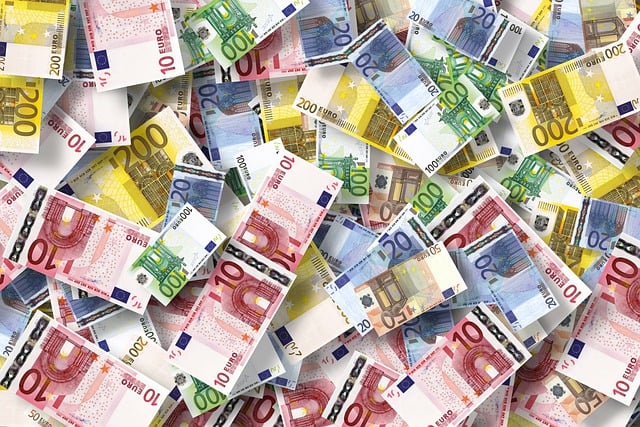Update with QuotedData comment: Apax Global Alpha (APAX) leaps to a 28-month high after its fund manager offers shareholders a 19% premium to last Friday’s share price to end the company’s ten-year stint on the stock exchange.
Shares in Apax Global Alpha (APAX) have shot up 17% after the private equity fund abandoned hope of eradicating its wide share price discount and unveiled a £794m plan to take itself off the stock market.
Premium and discount
Under a deal financed by US alternative assets group Ares and approved by the investment company’s board, fund manager Apax Partners will pay shareholders €1.90 cash per share for the euro-denominated portfolio of stakes in eleven private equity funds that it will continue to run.
According to this afternoon’s statement, that is an 18.8% premium to the 138.6p at which the London-listed shares closed at on Friday and 36.5% more than the average share price in the previous three months.
Shareholders, however, are not getting the full value of their investments as the bid is priced at a 17.1% discount below APAX’s unaudited net asset value of €2.29 at 30 June.
Nevertheless, the market was swift to price in the deal being accepted with the shares leaping 24p to 162.9p, a 28-month high.
PE fund share prices rise
This is the first take-private deal of a listed private equity fund since US fund manager HarbourVest bought SVG Capital in 2016, prompting speculation that more transactions could follow in an unjustly overlooked sector where discounts of over 20% are common.
CT Private Equity (CTPE) closed 2.7% higher on Monday on a 30% discount, while HarbourVest Global Private Equity (HVPE) gained 2.3% to stand 36% below NAV, as did NB Private Equity (NBPE) on a 24% discount. Oakley Capital Investments (OCI), Pantheon International (PIN) and Patria Private Equity (PPET) rose 1.4%-1-9%.
Stifel analyst Iain Scouller said APAX was a “friends and family” transaction with Apax staff and former employees providing most of the letters of intent to accept the deal. Activist City of London Investment
Management, holding 1.6%, and Towers Watson, manager of Alliance Witan (ATW), holding 5.4%, are also supportive.
He said, “in terms of a ‘read across’ on the rest of the sector, we think prices offered would need to be closer to NAV to get deals over the line.”
“We think the price here reflects the fact that many of the holders will not accept the cash option, but rollover into a new vehicle, an unlisted private fund, which will not be subject to the vagaries of share price discounts to NAV seen on the listed funds,” Scouller added.
The APAX board said it could not recommend this alternative as the successor private fund will be highly illiquid and with no clear date for an exit.
Apax shop window
APAX is the worst-performing of around 10 big London-listed private equity funds. Over five and ten years shareholders have received total returns of 37% and 104% respectively. However, these numbers have improved in the past year as the board, under new chair Karl Sternberg, ramped up share buybacks with surplus cash from investments alongside a commitment to pay 11p in dividends a year that gave it a near-8% yield.
Listed in 2015, APAX was meant to be a shop window for Apax, a well-known name in UK private equity co-founded by Sir Ronald Cohen over 50 years ago. Its aim was to deliver 12%-15% annual returns from investments in mature, but unquoted, businesses in technology, telecom, services and healthcare. However, returns fell short of target, stymied by a policy of holding up to a quarter of the portoflio in stocks once they had floated.
Apax said it had closely followed the performance of the Guernsey-based investment company and had been “impressed” by the board’s efforts to secure shareholder value in a sector blighted by wide share price discounts.
However, it believed the 27% average valuation deficit the fund had traded at in the past four years reflected structural problems in the investment company market. Moreover, the illiquidity of APAX was exacerbated by the fact that 42% of shareholders were Apax staff or alumni who were long-term holders who rarely sold.
The recent weakness of the dollar against the euro, which knocked 3.9% off asset value in the second quarter, was the final straw, the company indicated. This generated an “additional headwind” given it was 59% invested in the US.
QuotedData view
QuotedData senior analyst Matthew Read said: “While this transaction represents a first for the sector, it seems inevitable that this was going to happen at some point, given the significant discounts that continue to persist within the listed private equity space. We have long argued that many of these discounts look overdone, particularly once you factor in that the NAVs of these funds tend to be conservatively valued – with assets often displaying decent valuation uplifts on disposal – and that, in some cases, these NAVs are cyclically depressed. In this instance, we would like to have seen an exit closer to asset value as the NAV calculation is recent and looks reasonable.
“It is always disappointing to see a fund like APAX Global Alpha leave the listed market because of its discount. APAX was established to enable investors to gain exposure to Apax funds without the constraints typically associated with being a limited partner, while providing the benefits of daily secondary market liquidity. Unfortunately, the new structure doesn’t allow for this.
“If investors opt for the rollover into the private fund, there is an opportunity to exit in June 2027 at a 10% discount to NAV. This falls by 2.5 percentage points per year until the discount on exit is zero in 2031, but a six-year wait to completely eradicate the discount feels excessive. Unfortunately, the alternative is exiting at a 17% discount today, but this means foregoing any potential NAV upside in the process.“
